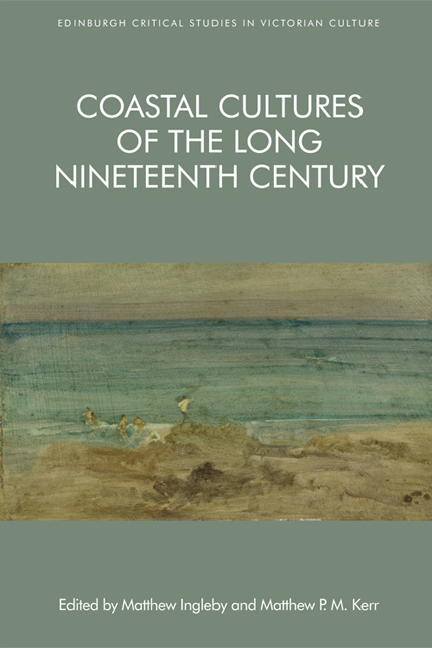3 - Henry Brougham and the Invention of Cannes
Published online by Cambridge University Press: 01 May 2021
Summary
When Henry Brougham, first Baron Brougham and Vaux, died in his villa in Cannes in May 1868 at the age of eighty-nine, he was well known for his many achievements in the fields of politics, law and education, and also as the man who put the Mediterranean town on the map. The south of France had been a holiday destination and playground for well-off British families for nearly a century. Cannes's near neighbour, the much bigger town of Nice, was particularly associated with English visitors, especially after a visiting clergyman, Lewis Way, had helped to fund the construction of the Promenade des Anglais as a way of supporting starving local inhabitants after a particularly harsh winter in 1821 to 1822. But Cannes had been a tiny fishing village until it was discovered by Lord Brougham in 1834 and subsequently turned into a famous and thriving seaside resort, favoured by literary visitors from Edward Lear in the mid-1860s to F. Scott and Zelda Fitzgerald in the 1920s, and since the late 1930s famous as the venue for an annual film festival. Lear celebrated one of his winters in Cannes with an illustrated limerick:
There was an Old Person of Cannes,
Who purchased three fouls and a fan;
Those she placed on a stool, and to make them feel cool
She constantly fanned them at Cannes.
Fitzgerald set his troubled last novel Tender Is the Night (1934) partly in Cannes, which he represents as still occupied by masses of English people, as it had been since the middle of the previous century.
As it happens, the story of Brougham's connection with Cannes is extremely well documented, in part because he was a wealthy English milord who cultivated close friendships with French politicians and with the so-called bourgeois king, Louis Philippe; in part because of his undeniable importance in the history of the reform of British institutions from the 1810s onwards; and in part also because of his extraordinary self-advertising personality and the notoriety he attained during his long and hyperactive life. During the 1820s he was one of the three most caricatured men in Britain, along with George IV and the Duke of Wellington.
- Type
- Chapter
- Information
- Coastal Cultures of the Long Nineteenth Century , pp. 69 - 78Publisher: Edinburgh University PressPrint publication year: 2018



